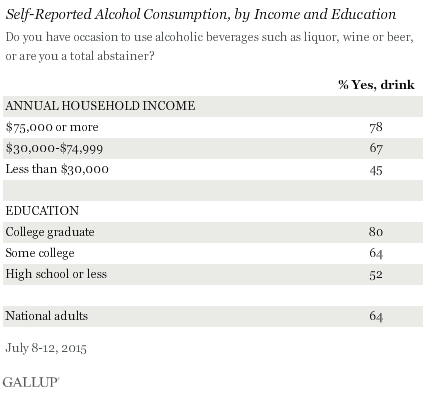NASHVILLE, Tenn. (June 22, 2017) – A study released from the Journal Development and Psychopathology found alarmingly high rates of substance use among young adults initially studied as teenagers – more prominently in affluent groups or those that would be considered economically privileged.“Results showed that among both men and women and across annual assessments, these young adults had substantial elevations, relative to national norms, in frequency of several indicators – drinking to intoxication and of using marijuana, stimulants such as Adderall, cocaine, and club drugs such as ecstasy,” says Suniya Luthar, a Foundation professor of psychology at Arizona State University and a professor emerita at Columbia University’s Teachers College, who led the research.The research studies two groups of students in affluent communities in the Northeast United States as part of the New England Study of Suburban Youth (NESSY). The researchers assessed them as high school seniors and then annually across four college years, and across ages 23-27.“We found rates of addiction to drugs or alcohol among 19-24% of women in the older cohort by the age of 26, and 23-40% among men. These rates were 3 and 2 times as high respectively, as compared to national norms,” says Luthar. “Among the younger cohort by the age of 22 years, rates of addiction were between 11-16% among women (close to national norms) but 19-27% among men, or about twice as high as national norms.”The study suggests that with more privilege and opportunities come more pressure to succeed. Because they are given these advantages, they must indulge them, creating a competitive environment with expectations set high. “I believe there is more pressure to succeed both academically and the professionally at the higher Socio Economic Class (SEC) level of schooling,” says Vinnie Strumolo, CEO of Vertava Health. There is usually a tremendous amount of stress by families on these higher level kids to perform and it probably leads them to use drugs in order to escape. They would also resort to drugs to help them stay awake and study for exams. They learn to just pop a pill for a solution.”  Photo courtesy: Business Insider“This is a problem that derives from multiple levels of influence, so we’re going to need interventions at multiple levels to tackle it,” Luthar told the Eureka Alert. “At the level of the kids themselves and their parents, it will be important to disseminate research findings – based on rigorous scientific data – that messing with drugs and alcohol really should not be trivialized as just something all kids do. The earlier children start to use and the more frequently they do, the more likely it is that they will develop addictions down the line.”A Gallup Poll found upper-income and highly educated Americans are more likely than other Americans to say they drink alcohol. Whereas 8 in 10 adults in these socio-economic status groups say they drink, only about half of lower-income Americans and those with a high school diploma or less say they drink.
Photo courtesy: Business Insider“This is a problem that derives from multiple levels of influence, so we’re going to need interventions at multiple levels to tackle it,” Luthar told the Eureka Alert. “At the level of the kids themselves and their parents, it will be important to disseminate research findings – based on rigorous scientific data – that messing with drugs and alcohol really should not be trivialized as just something all kids do. The earlier children start to use and the more frequently they do, the more likely it is that they will develop addictions down the line.”A Gallup Poll found upper-income and highly educated Americans are more likely than other Americans to say they drink alcohol. Whereas 8 in 10 adults in these socio-economic status groups say they drink, only about half of lower-income Americans and those with a high school diploma or less say they drink. Luthar also suspects that parents of high-achieving students might not take their teens’ use of drugs or alcohol as seriously as other parents because these high-achieving kids might still be doing well academically. She says more work also needs to be done to see how substance use changes as these teens get older and take on new adult roles, such as getting married or becoming parents themselves.“It’s difficult to analyze what percentage of our clientele are affluent,” says Vertava Health Treatment Specialist Eric Wheeler. “Wealthy people can usually afford really good insurance, but occasionally you will get a client that maybe doesn’t want their issues reported to insurance, or for there to be a paper trail of their adolescent treatment, and they will ask to pay the cost privately.”Addiction affects the poor as well. Since 2007, suicide rates have increased for older age groups. Some experts believe the trend was ignited by the economic recession from December 2007-June 2009. A study published in the British Journal of Psychiatry last June found that an additional 10,000 suicide deaths in North America and the European Union could be linked to the economic downturn.Addiction is a major public health problem, accounting for more deaths in the United States than car accidents or gun violence. It affects both males and females of all ages, ethnicities, demographic and economic characteristics, and involves both illicit drugs such as heroin and, increasingly, prescription drugs and alcohol. It is a disease that money won’t save you from, but alcohol dependency treatments can.
Luthar also suspects that parents of high-achieving students might not take their teens’ use of drugs or alcohol as seriously as other parents because these high-achieving kids might still be doing well academically. She says more work also needs to be done to see how substance use changes as these teens get older and take on new adult roles, such as getting married or becoming parents themselves.“It’s difficult to analyze what percentage of our clientele are affluent,” says Vertava Health Treatment Specialist Eric Wheeler. “Wealthy people can usually afford really good insurance, but occasionally you will get a client that maybe doesn’t want their issues reported to insurance, or for there to be a paper trail of their adolescent treatment, and they will ask to pay the cost privately.”Addiction affects the poor as well. Since 2007, suicide rates have increased for older age groups. Some experts believe the trend was ignited by the economic recession from December 2007-June 2009. A study published in the British Journal of Psychiatry last June found that an additional 10,000 suicide deaths in North America and the European Union could be linked to the economic downturn.Addiction is a major public health problem, accounting for more deaths in the United States than car accidents or gun violence. It affects both males and females of all ages, ethnicities, demographic and economic characteristics, and involves both illicit drugs such as heroin and, increasingly, prescription drugs and alcohol. It is a disease that money won’t save you from, but alcohol dependency treatments can.
Study: Rich Teens More Vulnerable To Drug, Alcohol Problems Later In Life


